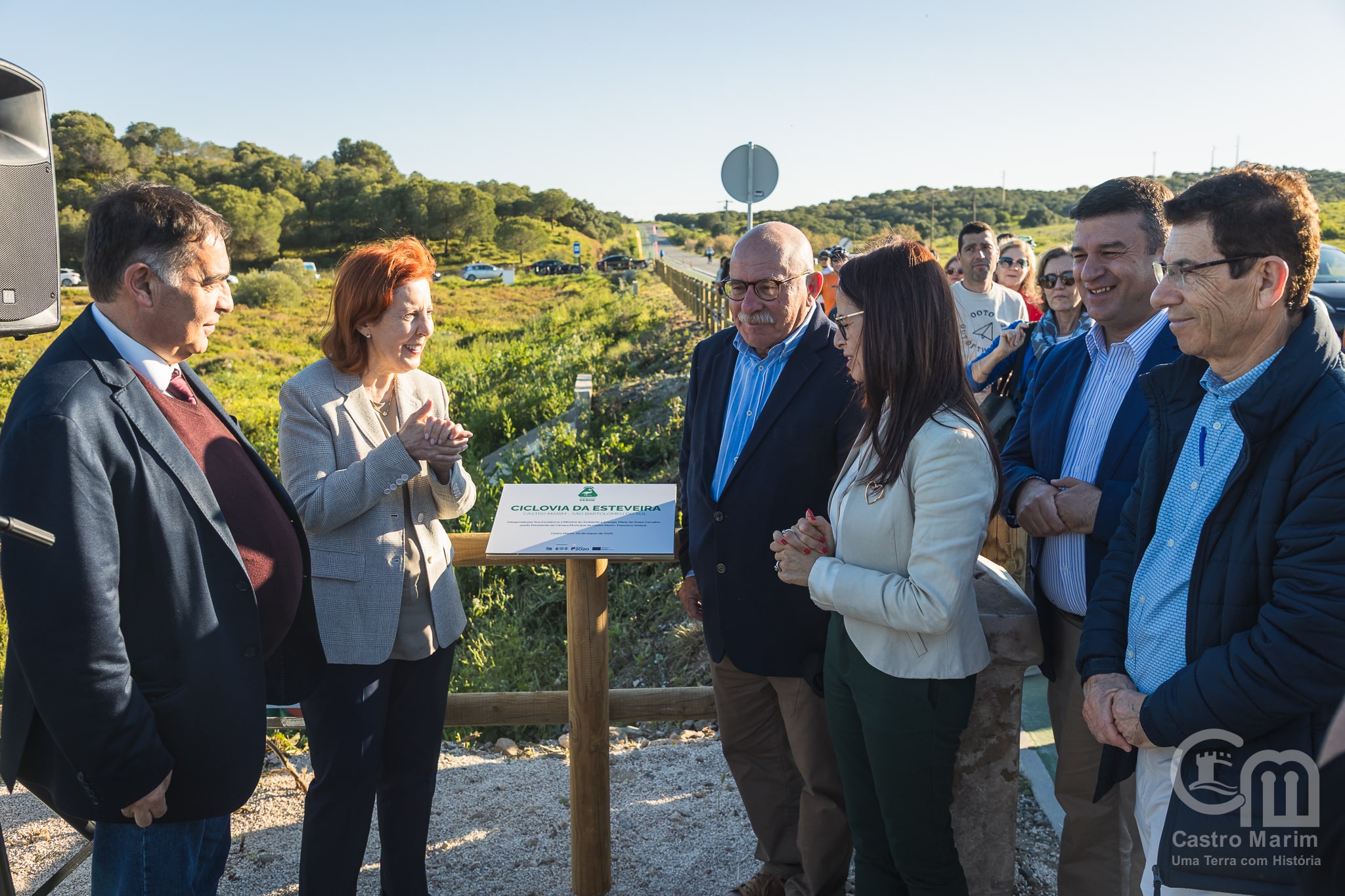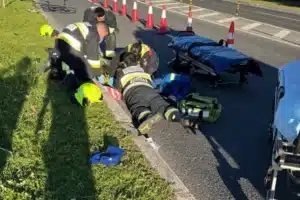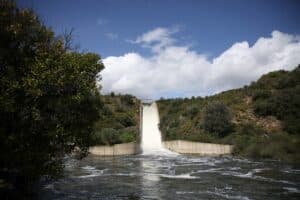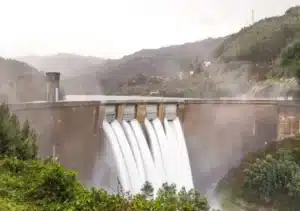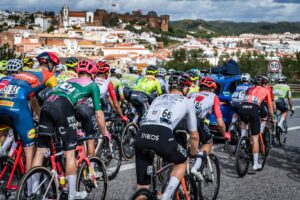Castro Marim is developing the Green Triangle project – a network of cycling routes
A new five-kilometre cycling route was inaugurated last weekend in the eastern Algarve municipality of Castro Marim by Portugal’s Minister of Environment.
‘Ciclovia da Esteveira’ (Esteveira Cycling Route) connects the town of Castro Marim to the Praia Verde intersection via São Bartolomeu de Sul, stretching along the national EN125-6 road for nearly five kilometres. Its construction also led to the complete resurfacing of the road.
“We now have 15 kilometers of what we call the Green Triangle – an environmental and tourism landmark, a space for everyone that ensures inclusion and quality of life. We will continue working every day towards sustainable mobility,” stated Filomena Sintra, deputy mayor of Castro Marim, at the inauguration ceremony.
The opening of this cycle path marks the first phase of a broader initiative aimed at enhancing road safety, signage, and tree planting along the route, the municipal council says in a statement. The next stage will involve further investments in the full resurfacing of entire EN125-6 road.
A second cycling route is due to be built soon between the village of Altura along Avenida 24 de Junho and Monte Francisco, also as part of the Green Triangle project.
A third phase, currently under review for funding, aims to secure investment for a roundabout at Praia Verde and the extension of the cycle path directly to the beach.
The municipal council says that these new cycling routes align with its environmental and sustainability policies, citing as an example the recent installation of solar-powered lighting along the Lezíria cycling route, the first section of the Green Triangle.
“The path to sustainability is driven by people. Engaging communities and addressing their needs is the best way to achieve decarbonisation and environmental protection,” said minister Maria da Graça Carvalho. “I am always pleased to witness real-world examples of sustainability efforts, such as this cycle path and the Green Triangle initiative,” the politician added.
Graça Carvalho also hailed the broader impact of the new cycle path, calling it “a valuable project for the community with significant benefits for sustainable living. It provides a concrete alternative to cars and motorised vehicles, which is very important for this region.”
The cycle path project represents an investment of over €1 million, funded under the PO CRESC Algarve 2020 program. It received 50% co-financing from the European Regional Development Fund (FEDER) as part of the Sustainable Urban Mobility Action Plan (PAMUS).

